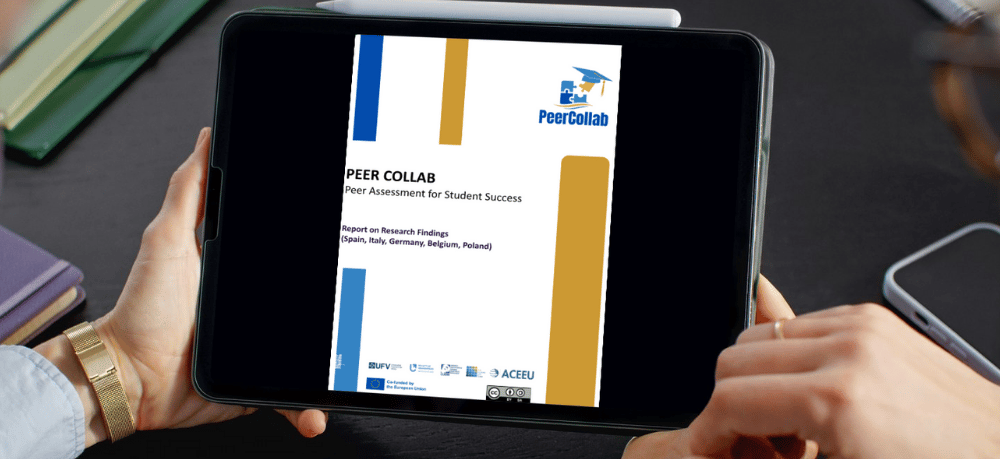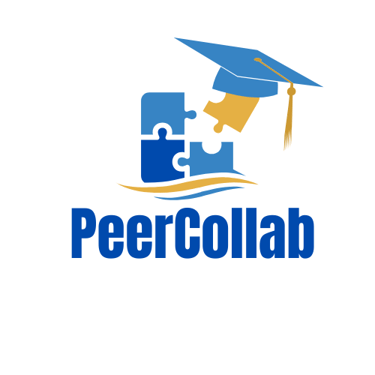Insights from PeerCollab Erasmus+ project needs analysis
8/5/2025


We would like to share with you some of the results of the research conducted within the PeerCollab Erasmus+ project.
Peer assessment and awareness of purpose
Awareness of the purpose and aim of the assessment appears as an important motivating factor - confirm the results of the research conducted within the PeerCollab Erasmus+ project. Students acknowledged that their engagement increases when they know why they are doing a peer assessment and who will see it. If the feedback goes directly to the colleague being assessed (and is solely for the purpose of improving their work), then they are more likely to write honestly and in detail.
"It's important to know who the evaluation is going to - whether it's just the person we're evaluating ... or whether it's also going to ... go to the tutor, for example" - noted one participant. When the peer assessment is only informative to the students themselves, and does not affect credit, the motivation for reliability is higher, as the aim becomes to help a colleague improve their work, rather than to give a formal mark. On the other hand, the knowledge that colleagues' marks will go to the teacher and may translate into a final mark in the index acts as a disincentive - students then feel pressure not to hurt their friends with too harsh an opinion.
Peer assessment and personal development and work
Students agreed that a well-conducted peer assessment can contribute significantly to the personal development of those assessed. Honest and constructive criticism from peers indicates areas for improvement that can be worked on in future projects or presentations. "These benefits will definitely be this self-development... if someone evaluates us fairly..., then we can really take it personally and work on future... projects, presentations" said one participant, confirming the educational potential of feedback. For many, peer assessment was associated with feedback as a means of improving work and self-improvement - the moderator even quoted a maxim related to feedback: that it should serve to make people grow and expand their self-awareness. In a similar vein, participants emphasised that constructive feedback from the group can help to better prepare for the next tasks.
Furthermore, there was an opinion that participation in peer evaluation also benefits the evaluators. They learn to give feedback, formulate their thoughts and observations in a helpful way. One student even considered this to be the most important benefit: "I think the biggest benefit of this form of assessment is that we learn to give and receive constructive feedback". She emphasised that this is a skill that is very important not only in her studies, but also "in the future, for example in her career or even in her personal life".
Through peer review, students become familiar with both the role of the critic and the recipient of criticism - a valuable lesson in communication. Some also noted that systematically discussing their work among peers can give courage to the less bold. In a group where many people share opinions, even those who are usually silent can feel encouraged to express themselves. "If ... a lot of people are judging, it can prompt someone who wouldn't normally be brave enough [to] express their opinion about someone else's work" - noted one participant, pointing to the inclusive aspect of this form of evaluation.
Peer assessment and digital tools
Another interesting suggestion was to use digital tools to conduct peer assessment in a more attractive and effective form. One idea was to use a popular quiz app (e.g. Mentimeter, Kahoot) to collect feedback. "I thought of using Kahoot, for example" said a participant in the discussion, explaining that in such an app all students could enter their grades or comments at the same time. The system would collect the results and display them (e.g. as a word cloud or a summary of the most frequent comments) anonymously for the person being assessed.
In this way, the person being assessed would immediately see the aggregated feedback - e.g. the three most frequently identified strengths and the three most frequent suggestions for improvement. "She would see which things are so most important... she would have, I don't know, the three biggest ones: this is the best, and this... the worst (but also appeared most often)". - explained the author of the idea.
In doing so, she emphasised that such a solution would ensure anonymity (it would be impossible to know who had typed in what comments) and allow for multiple responses at once in a short period of time. Such a digital tool could also increase the attractiveness of the form - students would be more likely to take part in an interactive session on their phones or laptops than in a traditional paper-based questionnaire.
For more insights from our research, check the full PeerCollab needs analysis report here.
The project “PeerCollab” is co-funded by the Erasmus+ Programme of the European Union. The views expressed in the working papers, deliverables and reports are those of the project consortium partners. These views have not been adopted or approved by the Commission and should not be relied upon as a statement of the Commission’s or its services’ views. The European Commission does not guarantee the accuracy of the data included in the working papers and reports, nor does it accept responsibility for any use made thereof.
© 2025. All rights reserved.
Follow us
Keep in Touch
Project Number: 2024-1-ES01-KA220-HED-000254336
